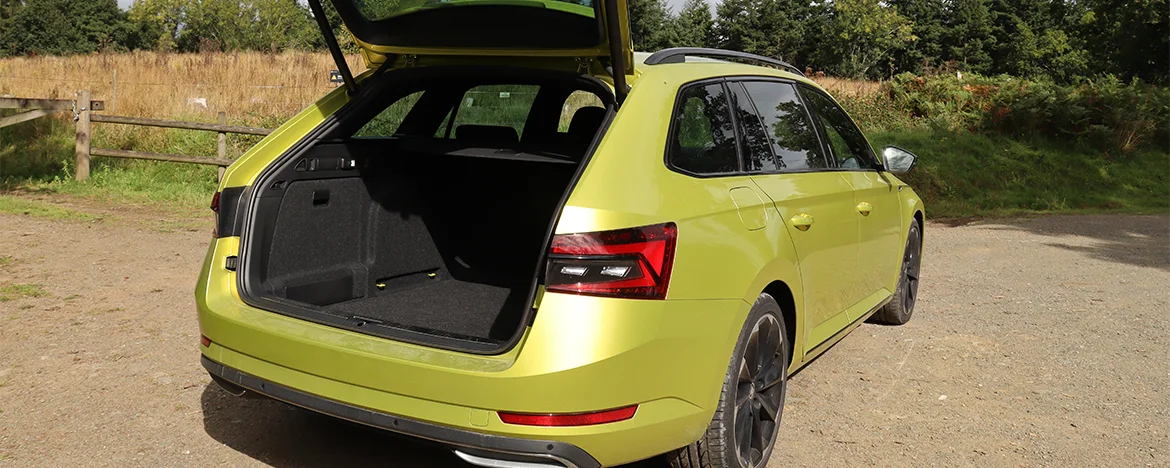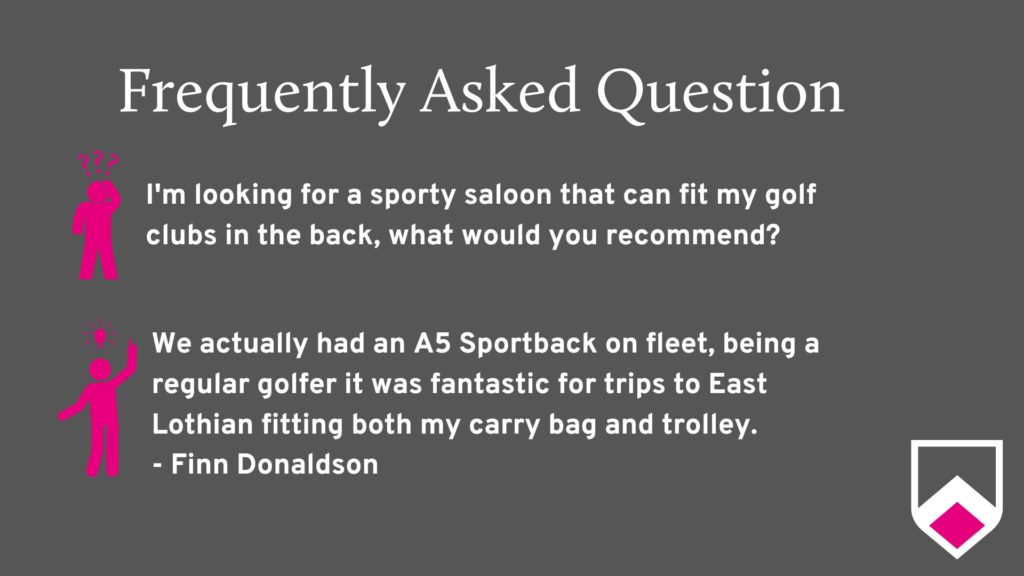Whenever you’re trying to find out what boot space your potential new car has, it’s the same measurement that’s always used: litres. If you’re wondering why we measure the boot space in litres and not just volume cubic metres, the answer is quite straightforward. Simply put, boot layouts are so different between makes and models that trying to give some kind of boot dimensions in between anything from CD changes. Also, wheel arch spaces and spare wheel storage areas would just result in confusing numbers. Hence, it wouldn’t really make much sense to anyone as a consumer looking for consistency in measuring capacity of boots across the board.
And while this is an industry standard, it’s not a particularly good representation of the overall usable space. With some help from our in-house experts, let’s make this decision a little simpler with our guide to different types of cars and what cargo you can typically expect to fit in your boot.
How do I find out what boot space I need when looking for a new car?
If you’re looking for a new car and know what you’d expect to transport in it, even considering the occasional holiday, you’ve likely got some idea of how large you want your boot to be. However, with the various shapes and sizes of cars on the market always increasing, it’s helpful to have a basic guide that you can use as a rule of thumb, saving you from having to look at every option in lots of detail.
Coupe boot space
A sporty two-door car such as a BMW 2 Series. There isn’t usually much usable boot space, especially with convertible models. Expect around 350 – 400 litres of capacity.
Hatchback boot space
A compact car, such as a Mercedes A-Class. This can be deceptively spacious on the inside due to having full access to the rear of the car as a boot, unlike a saloon. A typically sized boot space would be somewhere between 270 – 320 litres, which can increase when the rear seats are folded down.
Saloon boot space
Saloons such as an Audi A4 are a great buy for those who want comfort for multiple passengers alongside good storage space with a larger boot. A boot capacity of around 390 – 440 litres is what you can expect.
Estate boot space
Estate cars like the Volkswagen Passat combine the boot functionality of a hatchback with the space and comfort of a saloon and offer one of the largest boot spaces for the shape of car on the market. Around 600 – 700 litres of boot space is common for estate vehicles, but this figure can potentially double if the rear seats are folded down.
SUV boot space
An SUV (sports utility vehicle), such as a Mercedes GLA, combines elements of off-road vehicles (higher ground clearance and 4×4 capabilities) with road-going vehicles. This increased vehicle size also means increased boot size. and you can expect an average of around 450 – 550 litres of boot space.
Are electric vehicles good for luggage?
It’s often mentioned that EVs have diminished storage capabilities due to the batteries taking up space in the boot floor where there would otherwise be nothing in a conventional ICE vehicle. Whilst batteries do indeed sit in this area, in many models of EVs this has had little to no effect on storage capacity. Take the Tesla Model 3 Saloon for example. Comparable to other saloons, this vehicle boasts 542 litres of boot space which is an impressive figure even when stacked against the likes of a new Mercedes E-Class saloon, which in the E300e format, actually has less storage capacity than our Model 3. A rather impressive feat. With battery technology only improving, having to sacrifice storage space in the boot floor for batteries is becoming a thing of the past, and we have the models to prove it.
What can I actually fit in my car boot?

Now that we’ve established a quick guide for different vehicle types, we need to translate that to what items you can actually fit in your luggage space. Everybody’s needs will be slightly different for when and how they use the space of their vehicle, but it’s important for you to know that, when you need it, you have an ample amount of space for the task at hand. Below is a list of activities you can typically expect to use your car for at some period in your ownership.
Boot space for weekly shops
If you’re single or a couple, you’ll have enough space for your weekly shop in all the different vehicle types we’ve covered. However, if you have a family and your weekly shop is that little bit larger, you might struggle in a coupe, and may have to start folding down those rear seats in a hatchback.
I want something that I can get the family buggy in the back along with a week’s worth of grocery shopping but most family cars seem much bigger these days, what would you recommend?
“We can look at a range of small estate cars and compare the boot capacity sizing to meet your needs. Small estate cars have become less popular in recent years but are still a great alternative to the SUV style of car and can come in more cost effective as a family vehicle. They offer smaller car driving with the enhanced boot space, making it better for driving around town, parking at the shops and at school. Most manufacturers still offer a small estate car option, such as the Skoda Octavia, Audi A4 Avant, SEAT Leon Estate, Volvo V60 and the VW Golf Estate, all of which P+B can look to supply.”
Boot space for weekends away

Much like a weekly shop, all the vehicle types we’ve listed will be enough to fit your luggage for a weekend away. But again, in coupes and hatchbacks you might find yourself approaching the limit of space, especially when it comes to larger and rigid suitcases and heavy items that can’t just be pushed in where they need to be.
I want a car that can fit my medium-sized dog crate but would prefer not to have anything bigger than a hatchback size as I live in the city centre and parking is at a premium.
“I would actually ask the client the breed of dog so I can understand what medium-sized is to them! Based on that information I would advise that you are best to look at a compact SUV, something like a Volkswagen T-Roc.”
Boot space for extended holidays
If you’re planning a long holiday for just yourself or as a couple, a hatchback should just about fit what you need to, if you make good use of any folding seats. But it’s at this point that using a coupe simply becomes too small, as this is not what they were designed for. For extended holidays with families, even a saloon might start to be too small, depending on what you’re bringing and how you’re using it. This is especially true if you have a buggy for younger children, or you’re going on a holiday that needs a lot of equipment, such as your camping gear. It’s here that estate vehicles really come into their own, being able to fold individual seats as and when necessary for additional luggage space.
Boot space for sporting activities
If golf at the weekend is your forte, then it’s crucial to make sure you have enough space for all your clubs and equipment. And unlike shopping that you can just repack into the space available, you can’t make solid pieces of sports equipment fit into the smaller boot spaces of a coupe or hatchback. Many saloons have great features where only part of the rear bench needs to fold down for you to fit your clubs and rackets in the vehicle quickly and easily, leaving the rest of the boot space for you to pack whatever you need.

How can Pike + Bambridge help me find the right car for my lifestyle?
Here at Pike + Bambridge, we understand that everyone’s needs are different, and you require a vehicle that works for you and your lifestyle. We are fanatical about getting you the perfect vehicle and our expert team has helped thousands of people make the change to cleaner, greener mobility. Our team are here to help you at every step in making the right decision.
If you’re not sure what vehicle best suits your needs and want help in evaluating what boot space would be the best fit for your lifestyle, don’t hesitate to speak to one of our experts who will gladly guide you through the process with a 1:1 personal fact find.

